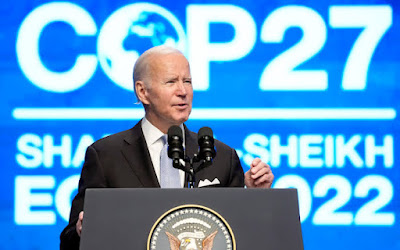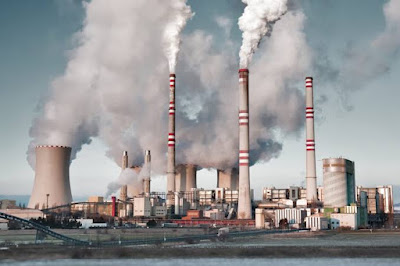The Conference of Parties (COP) is an important global event addressing climate change. The 27th edition, COP27, took place in Egypt Sharm Al-Sheikh in November 2022. The event brings together representatives from around the world to discuss and develop strategies to tackle the pressing issue of climate change.
In this article, we'll explore the objectives, members, commitments, funding, and United Nations involvement in COP27, as well as the contributions of developed countries.
What were the objectives of COP27?
The primary objective of COP27 is to build on the progress made during previous conferences and develop strategies to address the ongoing climate crisis. Specifically, the conference aims to:
- Strengthen the implementation of the Paris Agreement and accelerate the transition to a low-carbon, climate-resilient future.
- Foster international cooperation on climate change mitigation and adaptation, with a particular focus on developing countries.
- Advance the goal of limiting global warming to well below 2 degrees Celsius above pre-industrial levels and pursuing efforts to limit the increase to 1.5 degrees Celsius.
Who are the members of COP27 and what are their Commitments?
COP27 will bring together representatives from 197 parties to the United Nations Framework Convention on Climate Change (UNFCCC), as well as observers from non-governmental organizations and other stakeholders. Each party is expected to submit a Nationally Determined Contribution (NDC) outlining their commitments to reducing greenhouse gas emissions and addressing climate change.
The NDCs submitted by parties are expected to be more ambitious than previous commitments, in order to meet the goals of the Paris Agreement. Developed countries are expected to provide financial and technological support to developing countries to help them meet their NDCs.
The conference also provided opportunities for private sector involvement and investment in climate change solutions.
Contributions by Developed Countries':
Developed countries were expected to play a key role in supporting developing countries in their efforts to address climate change. Which included providing financial and technological support and sharing best practices and knowledge.
Many developed countries have already made commitments to supporting climate change solutions, including:
- The United States has committed to reducing its greenhouse gas emissions by 50-52% below 2005 levels by 2030, as well as providing financial support to developing countries.
- The European Union has committed to reducing its greenhouse gas emissions by at least 55% below 1990 levels by 2030, as well as providing financial and technological support to developing countries.
- Japan has committed to achieving carbon neutrality by 2050, as well as providing financial and technological support to developing countries.
The commitments of the United States and China, the world's two largest emitters of greenhouse gases, will be crucial to the success of COP27.
The United States, under the new Biden administration, has pledged to rejoin the Paris Agreement and take aggressive action to address climate change.
 |
| Joe Biden addressing COP27 |
The country has set a target of reducing its greenhouse gas emissions by at least 50% below 2005 levels by 2030 and has committed to reaching net-zero emissions by 2050. The Biden administration has also promised to invest in clean energy and infrastructure and to support the development of new technologies to address climate change.
Meanwhile, China has committed to peaking its carbon emissions by 2030 and achieving carbon neutrality by 2060. This is a significant shift from its previous stance, in which it had only committed to reducing emissions intensity (the number of carbon emissions per unit of GDP) rather than absolute emissions.
China has also pledged to increase the share of non-fossil fuels in its primary energy consumption to around 25% by 2030.
The commitments of the United States and China are important because they are responsible for a significant portion of global greenhouse gas emissions. If these two countries do not take aggressive action to address climate change, it will be very difficult to limit global warming to 1.5 degrees Celsius above pre-industrial levels, the goal set out in the Paris Agreement.
However, there are also concerns about the reliability of these commitments.
The United States has a history of making ambitious climate pledges and then failing to follow through on them.
China's commitment to carbon neutrality has been praised by many, but there are still questions about how the country will achieve this goal, particularly given its continued reliance on coal-fired power plants.
Overall, the commitments of the United States and China will be closely watched after COP27, and will play a crucial role in determining the success of the conference
Conclusion:
Despite these challenges, COP27 represents an important opportunity for the global community to come together and address the urgent issue of climate change.
By working together and committing to ambitious goals and strategies, we can build a sustainable, resilient future for ourselves and for future generations. Developed countries must continue to play a leadership role in providing financial and technological support to developing countries, and all parties must work together to ensure that the objectives of the conference are met.












